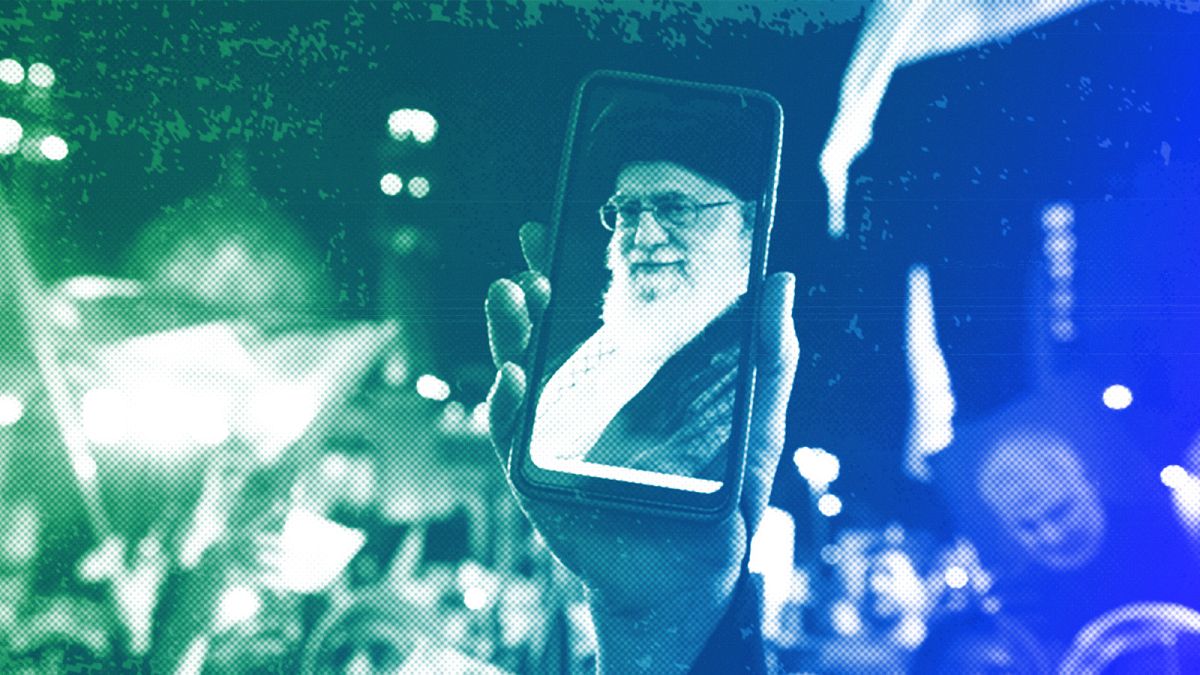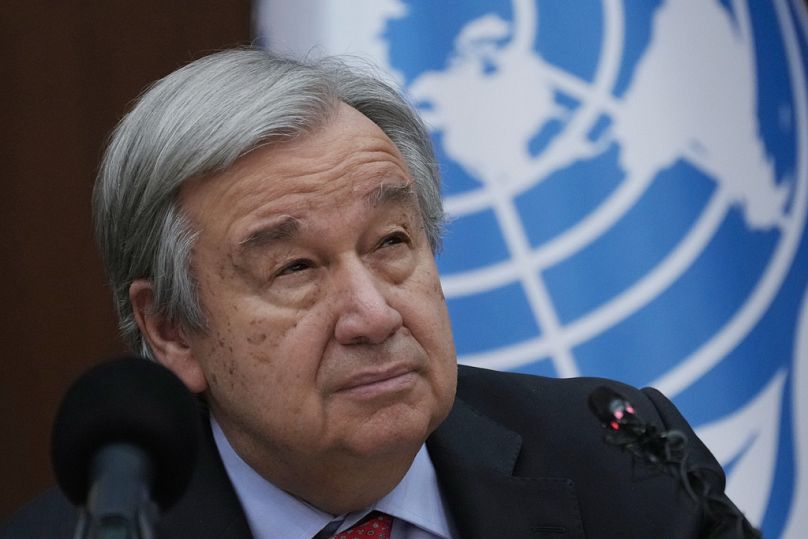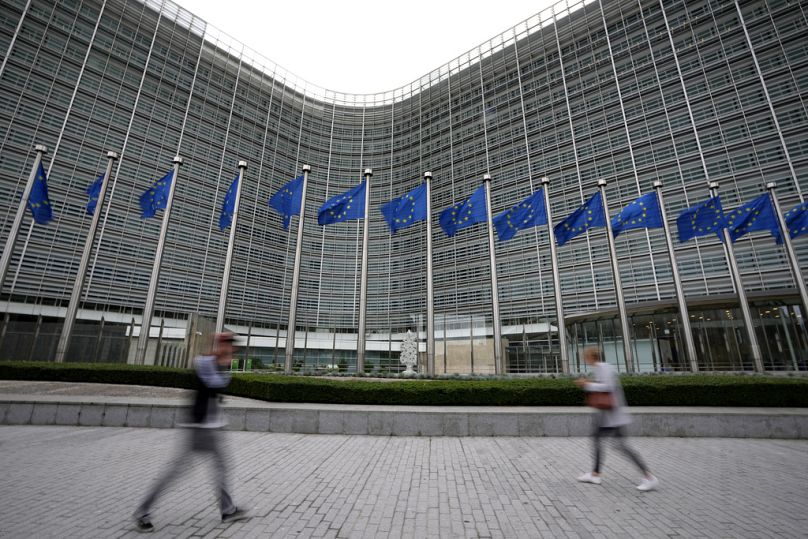There is no doubt that with disinformation becoming more widespread, we are in a war against weaponised information, Oliver Rolofs writes.
Today’s information society offers a lecture on the relativity of truth.
Across the world, there are masters at work in the art of bending the facts. And where the truth no longer matters, it becomes easier to wage war.
But disinformation is not a new concern. As early as 1710, the Irish satirist Jonathan Swift wrote in The Examiner: “Falsehood flies, and the Truth comes limping after it.”
Two centuries later, Britain's legendary Prime Minister Winston Churchill noted: “A lie gets halfway around the world before the truth has a chance to get its pants on.”
The wisdom of Churchill's words was tragically demonstrated again just two weeks ago, when we witnessed Hamas and other malign actors apparently pursue this approach to instrumentalise their supporters.
Upon investigation, some of the widely shared images of the alleged Israeli rocket attack on a hospital in Gaza appear to be a tragic, yet effective example of disinformation.
Yet for many observers, clear Open Source Intelligence (OSINT) analysis counted for little, as it did not fit into their preconceived narrative.
This kind of disinformation — whether practised by extremists, state actors like China, Russia, Iran, or other fake news-producing powers, all further enabled by social media platforms, messenger services and AI-based solutions such as ChatGPT — is increasingly a threat to global peace and stability.
Truthfully portraying facts-based reality
For centuries, nation-states have promulgated laws addressing the propagation of falsehoods, and on issues such as defamation, fraud, false advertising and perjury.
However, current discussions on disinformation reflect a new and rapidly evolving communications landscape, in part due to innovative technologies that enable the dissemination of unparalleled volumes of content at unprecedented speeds.
In his 2022 report on countering disinformation, UN Secretary-General António Guterres explored the challenges of navigating this qualitatively different media landscape and ensuring it advances, rather than undermines, human rights and international peace and security.
States, but especially tech companies, have a duty to take appropriate steps to address these harmful impacts. This is not an easy task, as they need to simultaneously limit any infringement on rights, including the right to freedom of opinion and expression.
The 1978 UNESCO Media Declaration could be a useful guiding light in this, however. Even in today's technological age, it could serve as a moral compass for states, tech and media companies providing any sort of communication service.
The tasks for the media formulated in the UNESCO declaration — to contribute to the strengthening of peace and international understanding, to promote human rights and to fight racism, antisemitism, apartheid and warmongering — are more relevant than ever.
Media, journalists, as well as social media platforms and messenger services are challenged to truthfully portray reality based on facts, especially in this digital age where every person can be a publisher with unprecedented reach.
By taking this principle to heart, the antagonism of conflict and the polarisation of societies around the globe can be overcome.
The European approach, a solid blueprint
There is no doubt that we are facing greater challenges on this front than ever before.
Platforms for dialogue and cooperation are crucial. International forums, especially those that bring together the Global North and Global South, such as the Global Media Congress in Abu Dhabi or the Deutsche Welle Global Media Forum in Bonn, in addition to UN formats, can give this issue the space it needs to drive a strong approach at the global level.
There is much to discuss. Combating disinformation is a complex challenge. While it is a global issue, the European approach can provide solid guidance for a multilayered approach.
It includes, via the EU Digital Services Act (DSA), new regulations on online platforms and improving EU citizens’ information environment by building transparency and security safeguards and holding tech companies accountable.
The DSA is strengthened through the EU Code of Practice on Disinformation, a strong albeit voluntary set of commitments from tech and media firms.
Further Europe-led approaches include the EU vs Disinfo website and database to highlight Russia’s influence campaigns against the EU, its member states, and allies.
More projects that actively engage society, like in the case of Finland, which has elevated the way citizens separate fact from fiction through effective media literacy toolkits, are also needed.
Across the Atlantic, new collaborative human-technological solutions — like the Public Editor project, a collective intelligence system that labels specific reasoning mistakes in the daily news, so we can all learn to avoid biased thinking now also implemented in Europe — could usefully further efforts in the fight against disinformation.
War against weaponised information
There is no doubt that with disinformation becoming more widespread, we are in a war against weaponised information.
Communicators, politicians, media and opinion leaders need to work together across borders, and they need a whole set of instruments to combat it effectively.
Investing in quality journalism, fact-based education and regulation, and using technologies such as social listening tools are the arsenal we need to help identify and defuse emerging threats before the world is thrown into outright turmoil.
Oliver Rolofs is a strategic security and communication expert and Director of the Vienna-based Austrian Institute for Strategic Studies and International Cooperation (AISSIC). Previously the Head of Communications at the Munich Security Conference, he also runs the Munich-based strategy consultancy, CommVisory.
At Euronews, we believe all views matter. Contact us at view@euronews.com to send pitches or submissions and be part of the conversation.


